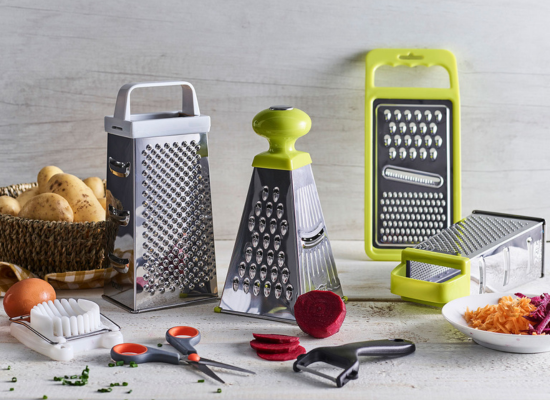
Gone are the days when people used to stand over their stovetops, waiting for the milk to boil. Thanks to microwave technology, we can warm up just about anything in a blink of an eye, saving us a lot of our precious time.
Whether you want a warm glass of milk coffee or hot chocolate, microwaving milk comes in handy no matter the time of the day.
However, microwaving milk can be tricky as it may result in spilled, scorched, or burned milk. To prevent this nightmare from happening, we’ve developed a 3-steps guide on how to warm up milk in the microwave.
The rest of this article will cover the ins and outs of warming up milk using a microwave.
- Is It Safe To Heat Milk In The Microwave?
- Tips For Microwaving Milk
- Could You Re-Refrigerate Microwaved Milk?
- Is It Ok To Microwave Non-Dairy Milks
Now, let’s get started!
How to Warm Up Milk in Microwave (In 3 Easy Steps)
Follow the 3 easy steps to heat up the milk in the microwave. Please note that the heating time is based on a 700-watt microwave. You may need to adjust the time according to your microwave wattage.
- Take a microwave-safe mug and pour 240ml milk into it.
- The second step is to microwave the milk on 70% power.
- The most important step is to stir the milk every 15 seconds interval until the milk is warmed at your desired temperature.
Note: We’ve discovered that stirring after every 15 seconds helps to heat the milk evenly. Besides, the 15 seconds interval ensures your milk is not overheated or scorched at the bottom.
How Long Does It Take to Warm Milk in the Microwave? (For Coffee, Hot Chocolate, Formula)
On average, it takes about 2 to 2.5 minutes to warm milk in a microwave if you operate your microwave at medium-high power (70%).
However, warming milk for coffee, hot chocolate, or formula milk slightly differ from each other.
For Coffee
For coffee, we recommend heating up the milk before adding either powdered coffee or coffee extract. That’s because the dry ingredients sometimes result in overflowing the milk.
Once you’ve warmed the milk following our 3 step guide, you can add your instant or brewed coffee into the milk.
For Hot Chocolate
It’s recommended to warm the milk separately in the microwave before mixing in the chocolate or cocoa. Another way is to start adding the chocolate powder into the milk halfway through microwaving.
Make sure to add chocolate powder during the 15-second interval and thoroughly mix the contents. It would take no more than 2 minutes to heat milk for hot chocolate.
Formula Milk
Although you can warm formula milk using a microwave, using other heating options is better. According to the FDA, it’s not recommended to heat formula or breast milk using a microwave.
That’s because it results in uneven heating of the milk, creating several hotspots in it. These hotspots can potentially burn an infant’s mouth while feeding.
Is It Safe to Heat Milk in the Microwave?
Of course, it’s safe to heat milk in the microwave. Just make sure to use a microwave-safe container to heat milk. The good news is you can warm dairy or plant-based milk in your microwave.
However, one disadvantage of heating milk in the microwave without giving intervals is that milk can overflow and spill all over the microwave base.
Worse enough, if you don’t give a 15 seconds interval while microwaving, the bottom of the milk usually scalds and burns. This results in a bad taste of milk overall.
Tips for Microwaving Milk (Tried and Tested)
Follow these easy tips to warm up milk in the microwave efficiently.
- Always warm milk in a microwave-safe glass or ceramic container. Plastic ones are a big no.
- Always set your microwave on medium-high power (70%) to warm up the milk.
- If you notice that your microwave doesn’t have a power control option, try to warm milk at the “defrost” option. This way, your milk won’t heat up to a high temperature.
- Don’t forget to stir the milk after every 15 seconds of microwaving. This will ensure even heating of milk as well as prevent scalding at the bottom of milk.
- Always check if the milk is heated to your desired temperature with the help of a cooking thermometer.
- Cover your milk container with a lid or paper towel before placing it in the microwave for faster heating.
- Avoid burning your hands by handling the container with great care, as it can be hotter than the milk itself.
Could You Re-refrigerate Microwaved Milk? (Just Don’t Do It!)
No, you must not re-refrigerate microwaved milk. Instead, try to consume it before it’s left to cool at room temperature. It’s best not to re-refrigerate microwaved milk due to the high risk of bacterial contamination.
Let’s not forget that milk is a perishable product that has a higher tendency to go bad, especially when left at room temperature. We recommend discarding any leftover microwaved milk rather than risking your health.
Is It Ok to Microwave Non-dairy Milks (Yes, and No!)
It’s ok to microwave non-dairy milk as long as you’ve set your microwave to low-medium power. Moreover, it’s essential to keep checking and stirring the milk after a 15 seconds interval to avoid curdling.
It’s important to note that much plant-based milk like soy milk alters its texture upon high heat. You may notice cuddles in milk after it’s heated to a high temperature. These cuddles result from coagulated proteins that tend to float over the surface.
The key is just to warm plant-based milk rather than microwaving them to its boiling point. This way, non-dairy milk does not alter its composition and texture.
LEARN MORE: How to Reheat Taco Bell Burrito in Oven?
What Happens if You Microwave Milk? (Know the Science Behind It)

When you microwave milk, electromagnetic radiation is emitted that excites the water molecules of the milk. The vibrated molecules create energy that quickly converts into heat energy. That heat, in turn, warms up the milk.
An important point to note here is heat is never evenly distributed in milk upon microwaving.
This results in hotspots having high temperatures while the rest of the milk is just warm in comparison. Such hotspots have the potential to burn one’s mouth while drinking milk.
Moreover, since we don’t overheat milk while microwaving due to the high potential of milk overflowing, it also helps retain the nutrition content of the milk.
Conclusion
Although there are many methods of warming up milk, we love to use the microwave as it’s super quick and efficient. The best part is, there would be no pans and pots to clean afterward! All you need is a microwave, microwave-safe container, and milk!
Having said so, it’s best to warm milk while stirring after every 15 seconds. This ensures your milk doesn’t overheat, spill, or scald.
Now that you’ve learned how to warm up milk in the microwave, it’s about time you exhibit your pro milk warming skills!
Go ahead and make a creamy cup of coffee or a comforting cup of hot chocolate, or maybe just enjoy a classic glass of warm milk all on its own. And thank us later!



